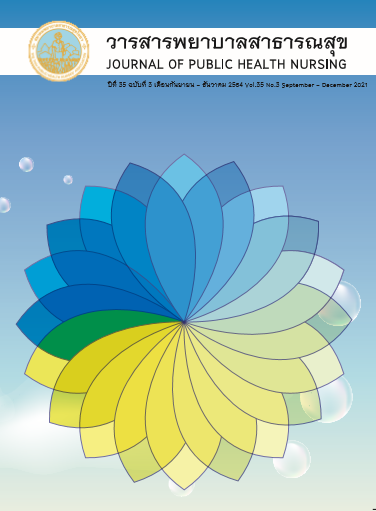Empowerment of patients with chronic kidney disease receiving continuous ambulatory peritoneal dialysis
Keywords:
Empowerment, Chronic kidney disease, Continuous ambulatory peritoneal dialysisAbstract
End-stage renal disease (ESRD) refers to a condition wherein permanent loss of nephron function that needs Renal Replacement Therapy (RRT). Continuous ambulatory peritoneal dialysis (CAPD) is a renal replacement therapy for eliminating waste products and excessing fluid from the body, maintaining the balance of minerals in patients, a non-complex procedure that patients can do in their own house with fewer expenses. Complications of dialysis are peritonitis, catheter obstruction, dialysate leakage, and hernia. This continuous treatment caused boredom, lack of motivation to self-care, lack of self-confidence, and loss of self-esteem. Health empowerment is a process that emphasizes patients to find the problems and decide to choose the ways to solve the problem themselves. Nurses are supporters who promote necessary self-care skills for continuous ambulatory peritoneal dialysis (CAPD). These help patients to enhance their self-efficacy and self-confidence lead to do correct ambulatory peritoneal dialysis continuously and reduce complications. This article aims to present knowledge about the empowerment of patients with end-stage renal disease. Nurses can apply this concept to empower patients, families, and the community, and empower patients to awareness and believe in taking care of themselves. That affects patients’ behavior change, self-confidence, and performs activities continuously for maintaining good health.
References
Chosivasakul K, Piaseu N. Outcomes of empowerment in patient with complex chronic kidney stage 3: A case report. TJNMP 2019; 6(1): 87-99. (in Thai)
Baumgart A, Manera KE, Johnson DW, Craig JC, Shen JI, Ruiz L, et al. Meaning of empowerment in peritoneal dialysis: focus groups with patients and caregivers. Nephrol Dial Transplant 2020; 35(11): 1949-58.
Unprasert P, Bumrungrachpukdee P, Yongsiri S, Dinchuthai S, Chaivanit T. Surgical complications with Tenckhoff catheters used in Continuous Ambulatory Peritoneal Dialysis (CAPD) for patients with End Stage Renal Disease (ESRD) at Burapha University Hospital in Chonburi, Thailand. BJM 2019; 6(1): 11-23. (in Thai)
Nilphat T. The outcomes of empowerment program on knowledge and self-care behaviors in patients with continuous ambulatory peritoneal dialysis, Suratthani Hospital. Reg 11 med 2017; 29(4): 557-96. (in Thai)
Sutrisno S, Fawzi A. Analysis of chronic kidney diseases patients With CAPD (Continuous Ambulatory Peritoneal Dialysis) and hemodialysis reviewed from kidney function (Ureum And Kreatinin). IJNER 2018; 1(3): 169-72.
Kosintorn P, Unahalekhaka A, Kasatpibal N. Effect of empowerment on infection prevention practices and incidence of infections among patients with continuous ambulatory peritoneal dialysis. Nursing J 2015; 42(special): 1-12. (in Thai)
Duarsa GWK, Udrayana O, Kandarini Y, Widiana R, Marleen. Factors that influence peritonitis events on patients with continuous ambulatory peritoneal dialysis in Sanglah General Hospital, Denpasar-Bali, Indonesia. NSMC 2020; 3(3): 82-6.
Tiawilai T, Tantivivhitvej R. The incidence and risk factors of first peritonitis episode in continuous ambulatory peritoneal dialysis patients of photharam hospital. Reg 4-5 Med J 2020; 39(1): 51-64. (in Thai)
Kokubu M, Matsui M, Uemura T, Morimoto K, Eriguchi M, Samejima K, et al. Relationship between initial peritoneal dialysis modality and risk of peritonitis. Sci Rep 2020; 10(1): 1-6.
Gibson CH. A concept analysis of empowerment. J ADV NURS 1995; 16: 354-61.
Poomsanguan K. Health empowerment: Nurse’s important role. JRTAN 2016; 15(3): 86-90. (in Thai)
Dar MI, Jan I, Bhat MA. Clinical profile and complications of Continuous Ambulatory Peritoneal Dialysis in Kashmir. Int J Contemp Med 2020; 7(4): 1-5.
Kotchasenee P. Renal replacement therapy [Internet]. 2021 [cited 2021 April 21]. Available from: https://www.nephrothai.org/wp-content/uploads/2020/08/.pdf
Dangdomyouth P, Malai Ch, Kanhadilok S. Health empowerment: Nurse’s role. Journal of Nursing Division 2017; 44(2): 159-68. (in Thai)
Pongkerd R, Choowattanapakorn T. The effect of empowerment program on self-care behavior in the older persons with chronic kidney disease receiving continuous ambulatory peritoneal dialysis. KJN 2016; 23(2): 165-82. (in Thai)
Isarankura Na Ayudhya V. Empowerment of patients with diabetes mellitus and hypertension disease in community: Concept application. CAS Journal 2014; 2(2): 14-20. (in Thai)
Prachumchalad J, Pangsuk P. The effect of a planned teaching program on knowledge, attitude and behavior in end stage renal disease patients receiving continuous ambulatory peritoneal dialysis. udhhosmj 2021; 29(2): 249-59. (in Thai)
Setboonsrang K, Prasomrak P. The care model development for end stage renal disease patient who had renal replacement therapy on self-care and quality of life in loengnoktha crown prince hospital, yasothon province. Community Health Development Quarterly Khon Kaen University Journal 2016; 4(4): 485-503. (in Thai)
Downloads
Published
How to Cite
Issue
Section
License
บทความที่ตีพิมพ์และแผนภูมิรูปภาพถือเป็นลิขสิทธิ์ของวารสารพยาบาลสาธารณสุข (Thai Public Health Nurses Association)







